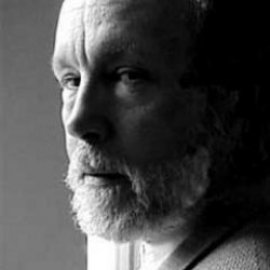Barry Lopez, Arctic Nature Writer
-
English
-
ListenPause
I’m Peter Neill, Director of the World Ocean Observatory. Barry Lopez is the fourth in our series about Nature writers who have shaped our understanding of the world. His Arctic Dreams – Imagination and Desire in a Northern Landscape stands as one of the most encompassing and evocative portraits of a natural place as I have ever read. Published in 1986, it remains a classic, a profile that extends from the tiniest wildflower in the tundra to the aurora borealis, from the musk ox to polar bear to narwhal to, as importantly, the Eskimo, the people who have been there for centuries and among whom Lopez immersed himself in their nomadic life, traditions, and reactions to the incursions of modern technological society. And then there are the dreams – those of the shamans, but also those of the explorers – of the 6th century Irish monks in open boats searching for the Isles of the Blessed, of the Elizabethan sailors looking for the Northwest Passage, of Cook and Peary obsessed with reaching the North Pole, and of his own. In his epilogue to the book, facing the open Bering Sea, Lopez writes, “When I stood I though I glimpsed my own desire. The landscape and the animals were like something found at the end of a dream. The edges of the real landscape became one with the edges of something I had dreamed. But what I had dreamed was only a pattern, some beautiful pattern of light. The continuous work of the imagination, I thought, to bring what is actual together with what is dreamed is an expression of human evolution. The conscious desire is to achieve a state, even momentarily, that like light is unbounded, nurturing, suffused with wisdom and creation, a state which one has absorbed that very darkness which before was the perpetual sign of defeat. Whatever that world is, it lies far ahead. But its outline, its adumbration, is clear in the landscape, and upon this one can actually hope we will find a way.” It is always interesting when one author genuinely compliments another, not just for the other’s work and influence but also on the sheer quality of the writing in and of itself. Robert Macfarlane, the writer we discussed in last week’s World Ocean Radio, has this to say about Lopez: “When he began to write about the Arctic, Lopez was faced with the challenge of making language grip a landscape that is both huge and ‘monotonic’. How was he to depict a realm of immensities and repetitions? How was he to bring this stark and enigmatic landscape within reach of words? “What Lopez understood was that detail anchors perception in a context of vastness. It is perhaps the defining habit of his style to make sudden shifts between the panoramic and the specific. Again and again, he evokes the reach and clarity of an Artic vision – and then zooms in on the ‘chitinous shell of an insect’ lodged in a tuffet of grass, a glinting tracery of ‘ broken spider-webs’, or ‘ the bones of a lemming ‘ whose form resembles that of a ‘strand of leghorn lichen next to them’. The effect for the reader of these abrupt perspectival jumps is exhilarating – as though Lopez has gripped you by the shoulder and pressed his binoculars to your eyes. “So many northern artists and writers are, like Lopez, distinguished by what Robert Lowell call ‘the grace of accuracy’. Thinking across their work, it becomes possible to deduce a shared metaphysics of northerliness: an exactness of sight; lyricism as a function of precision; an attraction to the crystalline image; shivers of longing, aurora-bursts of vision, and elegies of twilight…Looking from afar – from present to past, from exile to homeland, from island back at mainland, mountaintop down at lowland – results not in vision’s diffusion but in its sharpening; not in memory’s dispersal but in its plenishment.” That’s amazing writing. And those are the qualities our four Nature writers share. It is the closeness and clarity of observation that unites them. They are seekers and seers. There is instruction here, for each us, to put our self in Nature, to look and listen and feel so that we can understand and revere the profound value there, so that we can protect it and honor it as deserved. We will discuss these, issues, and more, in future editions of World Ocean Radio. WORLD OCEAN RADIO IS A PROJECT OF THE WORLD OCEAN OBSERVATORY, IN ASSOCIATION WITH WERU-FM, BLUE HILL, MAINE. FIND OUR PODCAST ON ITUNES, AND AT WORLD OCEAN OBSERVATORY DOT ORG.
In this fourth and final episode in a series on writers who have shaped his interest in the ocean and the natural world, host Peter Neill discusses the work of American author, essayist, and fiction writer Barry Lopez, whose “Arctic Dreams: Imagination and Desire in a Northern Landscape” stands as a classic--one of the most encompassing and evocative portraits of a natural place ever written.
About World Ocean Radio
Peter Neill, Director of the World Ocean Observatory and host of World Ocean Radio, provides coverage of a broad spectrum of ocean issues from science and education to advocacy and exemplary projects. World Ocean Radio, a project of the World Ocean Observatory, is a weekly series of five-minute audio essays available for syndicated use at no cost by college and community radio stations worldwide. A selection of episodes is now available in Portuguese, Spanish, French, Swahili, and Mandarin, enabling us to reach 75% of the world's population. For more information, visit WorldOceanObservatory.org/world-ocean-radio-global.
Resource from this Episode
Works by Barry Holstun Lopez:
< Arctic Dreams
< Home Ground: Language for an American Landscape
< Of Wolves and Men
< Light Action in the Caribbean
< Field Notes
< Resistance
< About This Life
< Crossing Open Ground
< Learn more about Barry Lopez here
- Login to post comments



